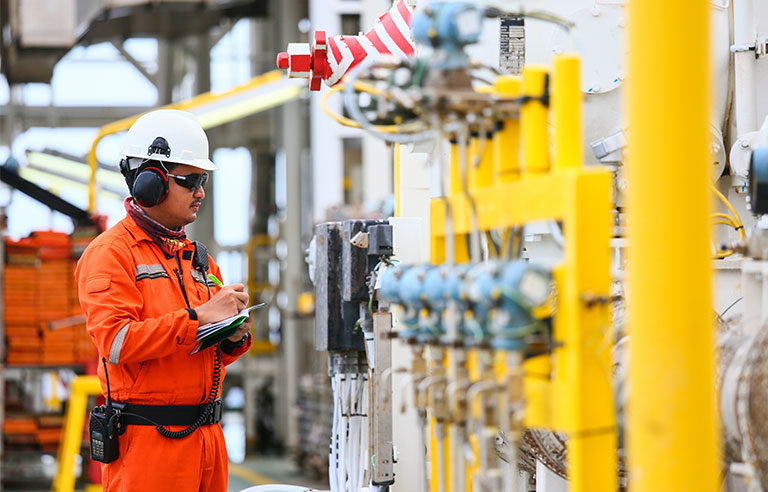Committee offers recommendations for strengthening safety culture in offshore oil and gas industry

Photo: curraheeshutter/iStockphoto
Washington – The Transportation Research Board, part of the National Academies of Sciences, Engineering, and Medicine, has released a report recommending strategies to bolster and maintain safety culture in the offshore oil and gas industry.
Strengthening the Safety Culture of the Offshore Oil and Gas Industry was prepared by a committee that included representatives from the Committee on Offshore Oil and Gas Industry Safety Culture, the Marine Board, and the Board on Human-Systems Integration Division of Human Behavioral and Social Sciences and Education.
The committee advocates the Bureau of Safety and Environmental Enforcement’s definition of safety culture as “the core values and behaviors of an organization that reflect a commitment to conduct business in a manner that protects people and the environment.” BSEE’s policy also highlights several essential elements of a successful safety culture, including leadership commitment to safety values and actions, a respectful work environment, personal accountability, hazard identification and risk management, and continuous improvement.
Varying work environments and complexities in the offshore oil and gas industry increase the difficulty of setting uniform standards, the report states. However, industry leaders still can work toward culture change by promoting collaboration with federal regulatory groups to develop guidance for safety expectations among operators, contractors and subcontractors. The committee also recognizes the need for an independent organization that focuses on safety and pollution protection without taking an advocacy role.
In addition, the committee recommends that regulators consider amending inspection methods, including adoption of the Safety and Environmental Management Systems Standard; and making incident and inspection report data available to the public in a timely manner.
Post a comment to this article
Safety+Health welcomes comments that promote respectful dialogue. Please stay on topic. Comments that contain personal attacks, profanity or abusive language – or those aggressively promoting products or services – will be removed. We reserve the right to determine which comments violate our comment policy. (Anonymous comments are welcome; merely skip the “name” field in the comment box. An email address is required but will not be included with your comment.)

